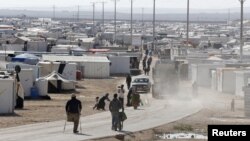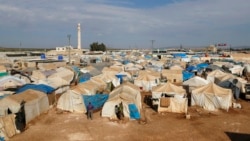At an international donors’ conference hosted by Kuwait, the United States pledged nearly $508 million in additional humanitarian aid to help alleviate the suffering of the Syrian people -- the victims of the greatest humanitarian disaster in a generation.
More than 220,000 Syrians have died, and more than half the population has been displaced -- millions to neighboring countries -- since the Syrian conflict began in March 2011, after Syrian President Bashar al-Assad responded to peaceful, anti-government protests with deadly force. Since then, he has continued to wage war on the Syrian people using barrel bombs, chemical weapons, and starvation.
Speaking at the conference, U.S. Ambassador to the United Nations Samantha Power said the international community must recognize that “this is not merely a conflict that affects civilians. It…deliberately targets civilians, and seems to make choices on the basis of how best to increase human suffering.”
The new pledge brings the United States contributions to the Syria humanitarian response to nearly $3.7 billion since the crisis began. The pledge was also the largest of any individual country.
“We are directing this aid to help meet Syrians’ immediate needs, such as treating more than 2 million patients in U.S.- supported hospitals and clinics, and feeding nearly 7 million people,” Ambassador Power said.
“Today we are calling on more countries to step up support for efforts like these, and on those countries that have already made generous contributions to do more. The greatest humanitarian crisis in a generation demands the response of a generation.”
Ambassador Power praised Syria’s neighbors for their “remarkable generosity” in hosting refugees. She also spoke of the incredible courage and care shown by aid workers, including Syrian doctors and nurses, who risk their lives daily to save others. Although far too many Syrians have not survived, Ambassador Power said, “There is no more powerful rebuke to the Assad regime’s disregard for human life” than the actions of these brave people.
“These…are our true partners in Syria. These are the people who most need immediate assistance and upon whose behalf we must press, relentlessly…to find a political solution,” said Ambassador Power. “They are the people, who in a Syria one day free of the ruthless grip of Assad and the terrorists, will eventually rebuild a nation out of the ruins. And while today they are doing all they can to keep Syria breathing, they cannot do it alone.”

















